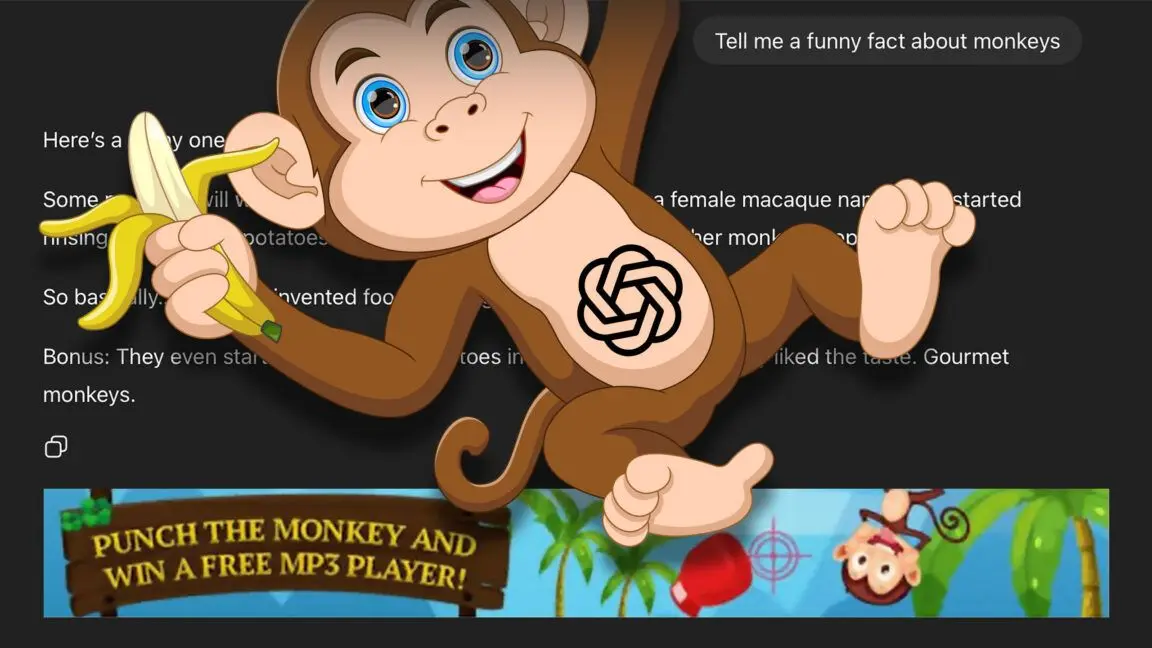Meta's Aggressive Push to Surpass OpenAI's GPT-4 with Llama 3: Revelations from Court Filings
2 Sources
2 Sources
[1]
Meta execs obsessed over beating OpenAI's GPT-4 internally, court filings reveal | TechCrunch
Executives and researchers leading Meta's AI efforts obsessed over beating OpenAI's GPT-4 model while developing Llama 3, according to internal messages unsealed by a court on Tuesday in one of the company's ongoing AI copyright cases, Kadrey v. Meta. "Honestly... Our goal needs to be GPT-4," said Meta's VP of Generative AI, Ahmad Al-Dahle, in an October 2023 message to Meta researcher Hugo Touvron. "We have 64k GPUs coming! We need to learn how to build frontier and win this race." Though Meta releases open AI models, the company's AI leaders were far more focused on beating competitors that don't typically release their model's weights, like Anthropic and OpenAI, and instead gate them behind an API. Meta's execs and researchers held up Anthropic's Claude and OpenAI's GPT-4 as a gold standard to work toward. The French AI startup Mistral, one of the biggest open competitors to Meta, was mentioned several times in the internal messages, but the tone was dismissive. "Mistral is peanuts for us," Al-Dahle said in a message. "We should be able to do better," he said later. Tech companies are racing to upstage each other with cutting-edge AI models these days, but these court filings reveal just how competitive Meta's AI leaders truly were - and seemingly still are. At several points in the message exchanges, Meta's AI leads talked about how they were "very aggressive" in obtaining the right data to train Llama; at one point, an exec even said that "Llama 3 is literally all I care about," in a message to coworkers. Prosecutors in this case allege that Meta's executives occasionally cut corners in their mad race to shipping AI models, training on copyrighted books in the process. Touvron noted in a message that the mix of datasets used for Llama 2 "was bad," and talked about how Meta could use a better mix of data sources to improve Llama 3. Touvron and Al-Dahle then talked about clearing the path to use the LibGen dataset, which contains copyrighted works from Cengage Learning, Macmillan Learning, McGraw Hill, and Pearson Education. "Do we have the right datasets in there[?]" said Al-Dahle. "Is there anything you wanted to use but couldn't for some stupid reason?" Meta CEO Mark Zuckerberg has previously said he's trying to close the performance gap between Llama's AI models and closed models from OpenAI, Google, and others. The internal messages reveal the intense pressure within the company to do so. "This year, Llama 3 is competitive with the most advanced models and leading in some areas," said Zuckerberg in a letter from July 2024. "Starting next year, we expect future Llama models to become the most advanced in the industry." When Meta ultimately released Llama 3 in April 2024, the open AI model was competitive with leading closed models from Google, OpenAI, and Anthropic, and outperformed open options from Mistral. However, the data Meta used to train its models -- data Zuckerberg reportedly gave the green light to use, despite its copyright status -- are facing scrutiny in several ongoing lawsuits.
[2]
Inside Meta's race to beat OpenAI: "We need to learn how to build frontier and win this race"
In an October 2023 email to Meta AI researcher Hugo Touvron, Ahmad Al-Dahle, Meta's vice president of generative AI, wrote that the company's goal "needs to be GPT4," referring to the large language model OpenAI announced in March of 2023. Meta had "to learn how to build frontier and win this race," Al-Dahle added. Those plans apparently involved the book piracy site Library Genesis (LibGen) to train its AI systems. An undated email from Meta director of product Sony Theakanath, sent to VP of AI research Joelle Pineau, weighed whether to use LibGen internally only, for benchmarks included in a blog post, or to create a model trained on the site. In the email, Theakanath writes that "GenAI has been approved to use LibGen for Llama3... with a number of agreed upon mitigations" after escalating it to "MZ" -- presumably Meta CEO Mark Zuckerberg. As noted in the email, Theakanath believed "Libgen is essential to meet SOTA [state-of-the-art] numbers," adding "it is known that OpenAI and Mistral are using the library for their models (through word of mouth)." Mistral and OpenAI haven't stated whether or not they use LibGen. (The Verge reached out to both for more information).
Share
Share
Copy Link
Court documents reveal Meta's intense focus on beating OpenAI's GPT-4 in AI development, highlighting the competitive landscape in the AI industry and raising questions about data usage practices.

Meta's Aggressive AI Development Strategy
Internal messages from Meta, unsealed in a recent court filing, have shed light on the company's intense focus on surpassing OpenAI's GPT-4 model with their own Llama 3 AI. The documents, revealed as part of the ongoing Kadrey v. Meta copyright case, expose the competitive nature of AI development within major tech companies
1
.Ahmad Al-Dahle, Meta's VP of Generative AI, emphasized the company's ambition in an October 2023 message: "Honestly... Our goal needs to be GPT-4. We have 64k GPUs coming! We need to learn how to build frontier and win this race"
1
. This statement underscores the high-stakes competition in the AI industry, with Meta positioning itself to challenge closed-source leaders like OpenAI and Anthropic.Competitive Landscape and Data Strategies
While Meta is known for releasing open AI models, the internal communications reveal a focus on outperforming competitors who typically keep their models behind APIs. The company's executives viewed Anthropic's Claude and OpenAI's GPT-4 as benchmarks for their own development
1
.Interestingly, Meta's attitude towards open-source competitor Mistral was dismissive, with Al-Dahle stating, "Mistral is peanuts for us. We should be able to do better"
1
. This perspective highlights the company's confidence in its resources and capabilities.Controversial Data Usage
The court filings also bring to light potential ethical concerns in Meta's data acquisition strategies. Discussions between executives suggest an aggressive approach to obtaining training data, with one executive stating that "Llama 3 is literally all I care about"
1
.Of particular interest is the mention of the LibGen dataset, which contains copyrighted works from major educational publishers. Meta researcher Hugo Touvron and Al-Dahle discussed using this dataset to improve Llama 3, despite its controversial nature
1
2
.Related Stories
Executive Involvement and Legal Scrutiny
The documents indicate high-level involvement in these decisions, with an email from Meta director of product Sony Theakanath suggesting that CEO Mark Zuckerberg approved the use of LibGen for Llama 3 training, albeit with "agreed upon mitigations"
2
. This revelation raises questions about the extent of executive knowledge and approval of potentially problematic data usage.Industry-wide Implications
These internal communications provide a rare glimpse into the competitive dynamics of AI development at major tech companies. They highlight the pressure to achieve state-of-the-art performance, sometimes at the potential cost of ethical considerations.
Meta's Llama 3, released in April 2024, was indeed competitive with leading closed models and outperformed open options. However, the data used to train these models is now under scrutiny in several lawsuits
1
.As the AI race continues, these revelations may prompt broader discussions about the balance between innovation, competition, and ethical data practices in the rapidly evolving field of artificial intelligence.
References
Summarized by
Navi
[1]
Related Stories
Recent Highlights
1
Anthropic releases Claude Opus 4.6 as AI model advances rattle software stocks and cybersecurity
Technology

2
University of Michigan's Prima AI model reads brain MRI scans in seconds with 97.5% accuracy
Science and Research

3
UNICEF Demands Global Crackdown on AI-Generated Child Abuse as 1.2 Million Kids Victimized
Policy and Regulation








